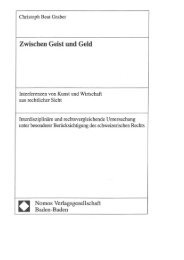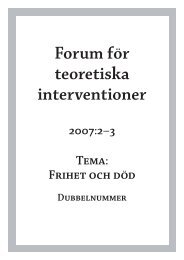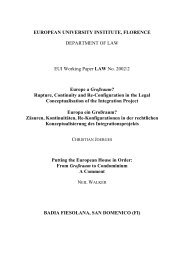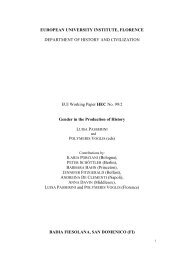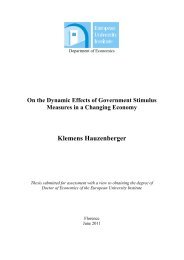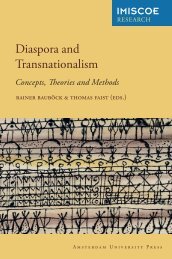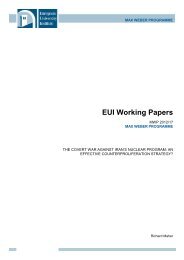Sinziana-Elena Poiana Ioana Lupea Irina-Madalina Doroftei Alina ...
Sinziana-Elena Poiana Ioana Lupea Irina-Madalina Doroftei Alina ...
Sinziana-Elena Poiana Ioana Lupea Irina-Madalina Doroftei Alina ...
You also want an ePaper? Increase the reach of your titles
YUMPU automatically turns print PDFs into web optimized ePapers that Google loves.
epresenting the Hungarian revolutionary Gabor Aron of Chichis commune, Covasna county. A young<br />
Romanian satisfied his physiological needs on the revolutionary’s monument, and another one mimed<br />
their satisfaction, the episode being recorded and posted in May 2010 on you tube under the<br />
headline ”for Hungarians”. The Prosecutor’s Office of Covasna Court decided not to initiate criminal<br />
proceedings against the persons who profanated the monument of the 1848 revolutionary Gabor Aron.<br />
"If Hungarians are victims and Romanians aggressors, the public authorities minimize the cases"<br />
stated the NCCD’s president Csaba Asztalos ( Csaba Asztlos’s interview).<br />
Interpretation of the findings: how dual loyalty and a mythological blockage inflame the public<br />
and lead to intolerant public and political behavior<br />
Clashing interpretations of autonomy: cultural diversity and the fear of segregation<br />
Transylvania’s history as border province, where the Romanians and Hungarians represented at times<br />
the majority or the minority in the population, determined both communities to develop competing<br />
identities (Mungiu, 2000, Salat, 2007). This is proved by all polls conducted after 1990 in connection<br />
with the way in which both groups define their identities. Romanians choose legal – formal criteria to<br />
define both identities (place of birth, citizenship, language) and self-identify as belonging to the civic<br />
in-group, in which they include Hungarians as well. However, they refuse to Hungarians their<br />
ethnicity stating that, in order to be Hungarian, you must be born in Hungary. Hungarians opt for selfrevising<br />
subjective-cultural criteria (mother tongue, feel Hungarian, be born in a Hungarian family, be<br />
baptized in a Hungarian church) and the legal-formal criteria that help define the identity as<br />
Romanian. Romanians expect Hungarians to assume their civic identity the way they see it and give<br />
up ethnicity, whereas Hungarians put to value ethnical identity and self-exclude from the civic ingroup.<br />
Highlighting the ethnic dimension of identity leads to a lack of trust and suspicion between the<br />
majority and the minority. 13% Romanians consider Hungarians a threat and 19% a problem, if not a<br />
threat (TNS-CSOP, 2007). This situation is due to the fact that DAHR made more visible, by its<br />
presence in the government, the claims of the Hungarian community for granting more rights,<br />
including cultural and territorial autonomy to the Szekler Land. Since early 90s, the Hungarian elite<br />
came up with models of autonomy, programs and legal initiatives meant to support Szekler Land’s<br />
autonomy. The Hungarians’ leaders initiated people’s consultations and local referenda in the counties<br />
inhabited mainly by Hungarians, which were dismissed in court. The theme is maintained on the<br />
Hungarian political elite’s agenda mainly for electoral purposes, in order to determine the Szekler<br />
Hungarians to go to vote, votes which are significant for the existence of ethnic parties.<br />
The majority is concerned that the legal rights obtained by ethnic Hungarians might lead to<br />
separation/segregation. The suspicion that behind the claims for autonomy lie actually intentions of<br />
secession has been frequently expressed in public, and the international recognition of Kosovo’s<br />
independence intensified this anxiety. The fear of secession is also enhanced by the official stand<br />
adopted by Hungarian prime-miniter Orban Viktor, a nationalist populist politician beloved among the<br />
Transylvanian Hungarians. Orban managed to convince the Parliament to change the Hungarian<br />
Constitution, whose preamble now refers to the “Hungarian nation”. Budapest supports the autonomy<br />
of Hungarians living in Romania, and the new pro-autonomy parties competing against DAHR. It has<br />
recently granted Hungarian citizenship to the Hungarians outside state-borders. The Romanian<br />
political elite dismisses even discussions on autonomy. The president Traian Basescu publicly stated<br />
that the Szekler counties would have as much autonomy as Galati county and that the Hungarians<br />
would never obtain territorial autonomy. The Romanian government views autonomy as a matter of<br />
national security, fact proven by the existence in the 90s of an anti-irredentist division within the<br />
Romanian Intelligence Service.<br />
64



